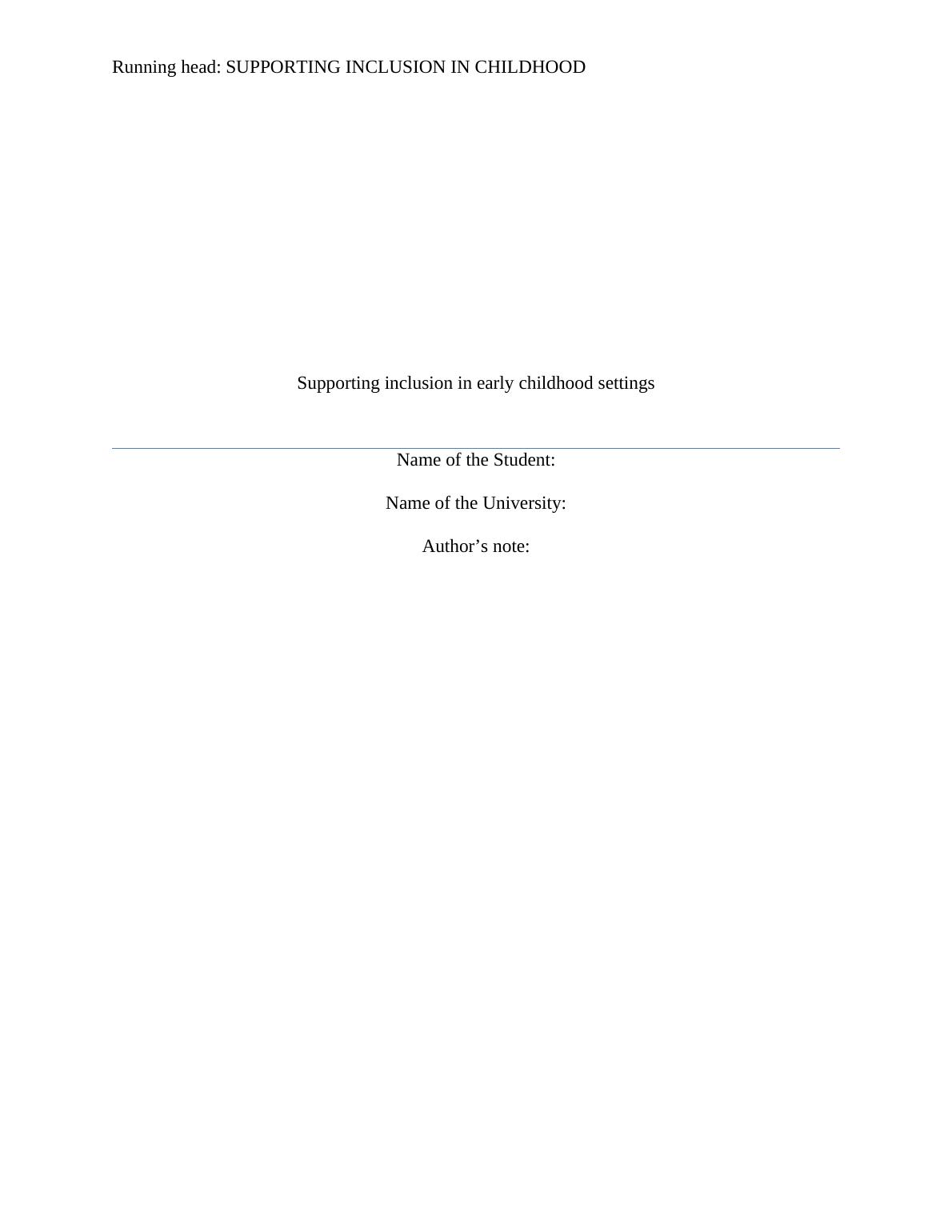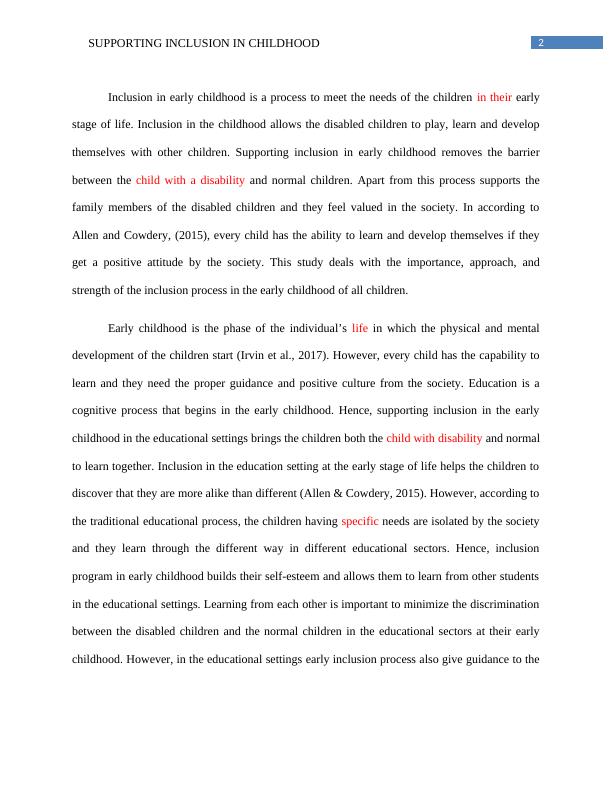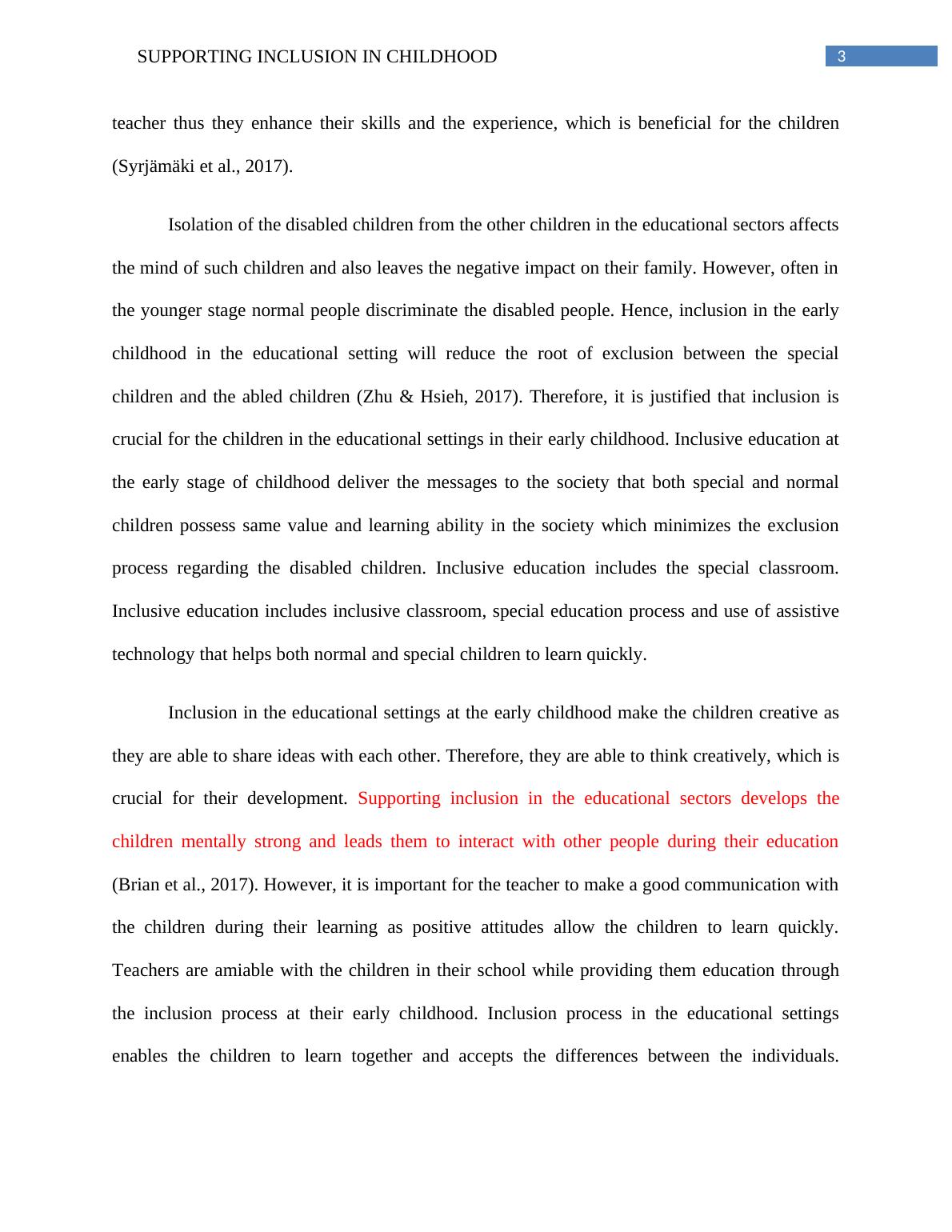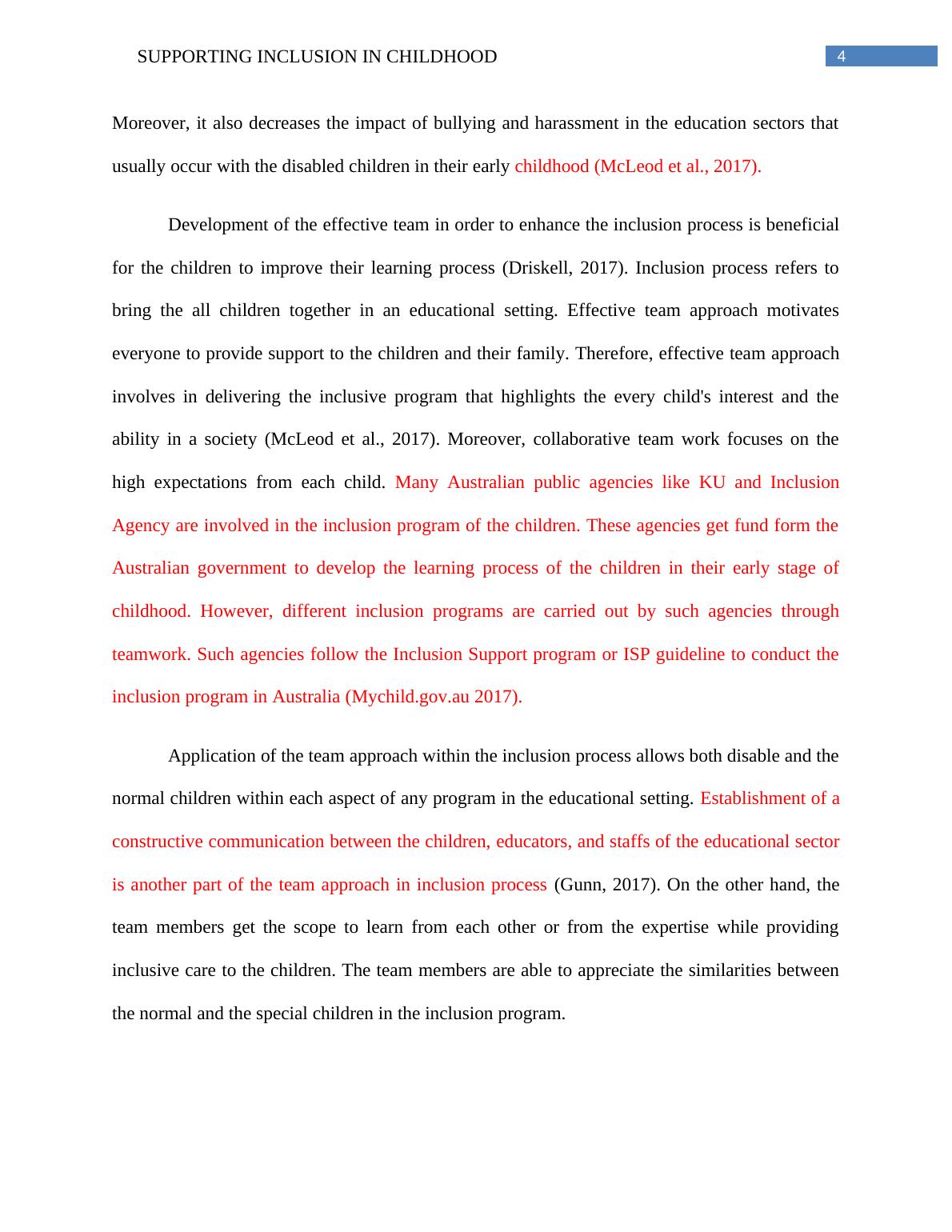ED5705 - Supporting Inclusion In Childhood Study
Added on 2020-03-04
12 Pages3206 Words224 Views
Running head:SUPPORTING INCLUSION IN CHILDHOODSupporting inclusion in early childhood settingsName of the Student:Name of the University:Author’s note:

2SUPPORTING INCLUSION IN CHILDHOODInclusion in early childhood is a process to meet the needs of the children in their earlystage of life. Inclusion in the childhood allows the disabled children to play, learn and developthemselves with other children. Supporting inclusion in early childhood removes the barrierbetween the child with a disability and normal children. Apart from this process supports thefamily members of the disabled children and they feel valued in the society. In according toAllen and Cowdery, (2015), every child has the ability to learn and develop themselves if theyget a positive attitude by the society. This study deals with the importance, approach, andstrength of the inclusion process in the early childhood of all children.Early childhood is the phase of the individual’s life in which the physical and mentaldevelopment of the children start (Irvin et al., 2017). However, every child has the capability tolearn and they need the proper guidance and positive culture from the society. Education is acognitive process that begins in the early childhood. Hence, supporting inclusion in the earlychildhood in the educational settings brings the children both the child with disability and normalto learn together. Inclusion in the education setting at the early stage of life helps the children todiscover that they are more alike than different (Allen & Cowdery, 2015). However, according tothe traditional educational process, the children having specific needs are isolated by the societyand they learn through the different way in different educational sectors. Hence, inclusionprogram in early childhood builds their self-esteem and allows them to learn from other studentsin the educational settings. Learning from each other is important to minimize the discriminationbetween the disabled children and the normal children in the educational sectors at their earlychildhood. However, in the educational settings early inclusion process also give guidance to the

3SUPPORTING INCLUSION IN CHILDHOODteacher thus they enhance their skills and the experience, which is beneficial for the children(Syrjämäki et al., 2017). Isolation of the disabled children from the other children in the educational sectors affectsthe mind of such children and also leaves the negative impact on their family. However, often inthe younger stage normal people discriminate the disabled people. Hence, inclusion in the earlychildhood in the educational setting will reduce the root of exclusion between the specialchildren and the abled children (Zhu & Hsieh, 2017). Therefore, it is justified that inclusion iscrucial for the children in the educational settings in their early childhood. Inclusive education atthe early stage of childhood deliver the messages to the society that both special and normalchildren possess same value and learning ability in the society which minimizes the exclusionprocess regarding the disabled children. Inclusive education includes the special classroom.Inclusive education includes inclusive classroom, special education process and use of assistivetechnology that helps both normal and special children to learn quickly.Inclusion in the educational settings at the early childhood make the children creative asthey are able to share ideas with each other. Therefore, they are able to think creatively, which iscrucial for their development. Supporting inclusion in the educational sectors develops thechildren mentally strong and leads them to interact with other people during their education(Brian et al., 2017). However, it is important for the teacher to make a good communication withthe children during their learning as positive attitudes allow the children to learn quickly.Teachers are amiable with the children in their school while providing them education throughthe inclusion process at their early childhood. Inclusion process in the educational settingsenables the children to learn together and accepts the differences between the individuals.

4SUPPORTING INCLUSION IN CHILDHOODMoreover, it also decreases the impact of bullying and harassment in the education sectors thatusually occur with the disabled children in their early childhood (McLeod et al., 2017).Development of the effective team in order to enhance the inclusion process is beneficialfor the children to improve their learning process (Driskell, 2017). Inclusion process refers tobring the all children together in an educational setting. Effective team approach motivateseveryone to provide support to the children and their family. Therefore, effective team approachinvolves in delivering the inclusive program that highlights the every child's interest and theability in a society (McLeod et al., 2017). Moreover, collaborative team work focuses on thehigh expectations from each child. Many Australian public agencies like KU and InclusionAgency are involved in the inclusion program of the children. These agencies get fund form theAustralian government to develop the learning process of the children in their early stage ofchildhood. However, different inclusion programs are carried out by such agencies throughteamwork. Such agencies follow the Inclusion Support program or ISP guideline to conduct theinclusion program in Australia (Mychild.gov.au 2017).Application of the team approach within the inclusion process allows both disable and thenormal children within each aspect of any program in the educational setting. Establishment of aconstructive communication between the children, educators, and staffs of the educational sectoris another part of the team approach in inclusion process (Gunn, 2017). On the other hand, theteam members get the scope to learn from each other or from the expertise while providinginclusive care to the children. The team members are able to appreciate the similarities betweenthe normal and the special children in the inclusion program.

End of preview
Want to access all the pages? Upload your documents or become a member.
Related Documents
INCLUSION IN EARLY CHILDHOOD SETTINGSlg...
|12
|3488
|26
Inclusive Education in Early Childhood Settingslg...
|12
|3591
|479
Supporting Inclusion in Early Childhood Settingslg...
|10
|3277
|179
Inclusion in Special Education: Models, Strategies, and Benefitslg...
|15
|3790
|337
Inclusion in Early Childhood Educationlg...
|13
|2851
|1
Impact Of Disability On Early Childhood Education Research Paper 2022lg...
|9
|2726
|21
